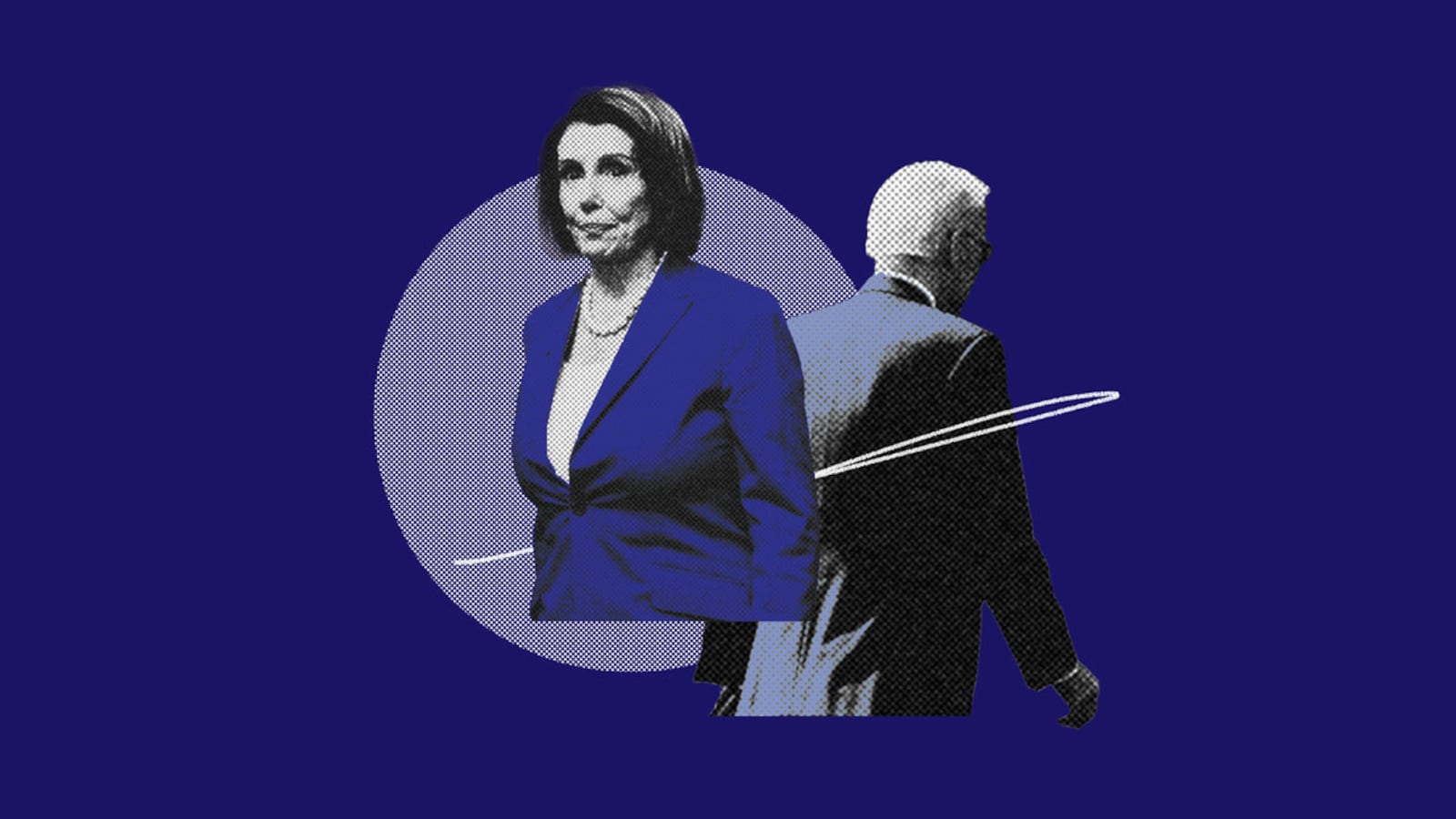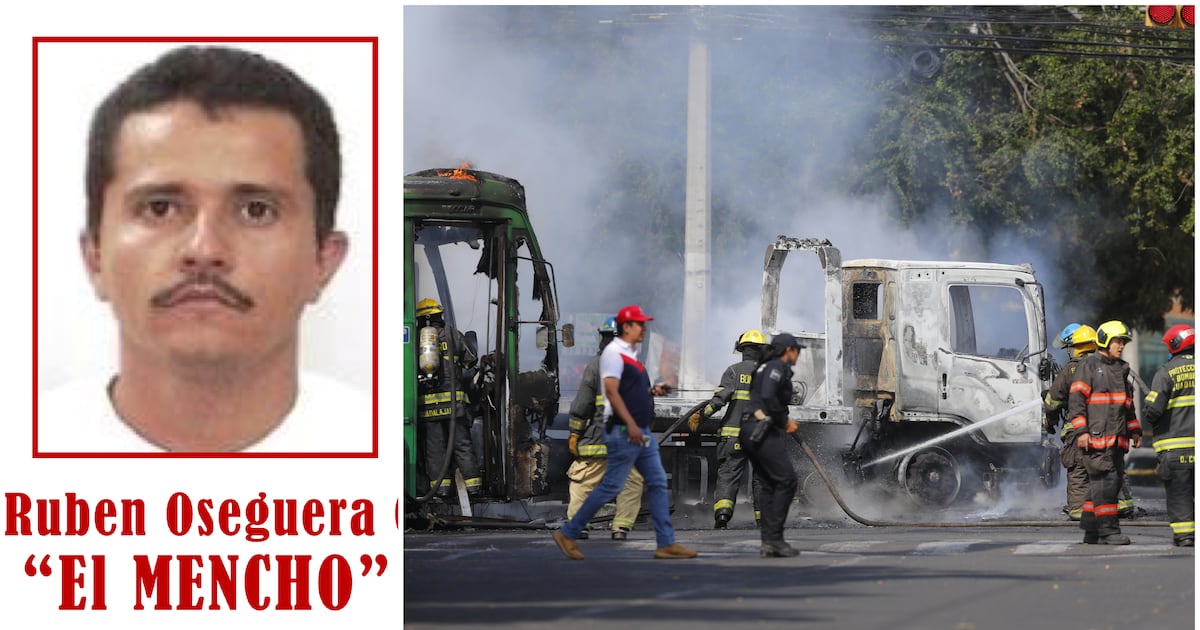For months, President Joe Biden has lambasted the far-right “Ultra MAGA” wing of the Republican Party as a dangerous force for radicalization and disinformation ahead of the midterms, even devoting a rare primetime address to what he called “an extremism that threatens our very republic.”
But five days after an internet-radicalized conspiracy theorist broke into the home of House Speaker Nancy Pelosi in an alleged kidnapping plot that ended with the speaker’s husband in the hospital with a fractured skull, Biden’s public response has been more cautious by comparison. The president has so far avoided directly tying the attack to the Republican Party’s increasing embrace of conspiracism and violent rhetoric—even as Republicans have begun making specious connections between the attack and Democratic policies on crime.
The president has spoken twice about the attack on Paul Pelosi, the speaker’s husband of nearly six decades—once in remarks at a fundraising event in Philadelphia on Friday and again at an informal gaggle with reporters the following day—each time emphasizing that the assault appears to be the latest in a long line of similarly violent incidents of domestic extremism since the siege of the U.S. Capitol on Jan. 6, 2021.
“It’s reported that the same chant was used by this guy they have in custody that was used on January 6th in the attack on the U.S. Capitol,” Biden told attendees, in reference to reports that the assailant, David DePape, shouted “Where’s Nancy? Where’s Nancy?” upon breaking into the speaker’s San Francisco home. “This is despicable. There’s no place in America.”
“What makes us think that one party can talk about ‘stolen elections,’ ‘COVID being a hoax,’ ‘this is all a bunch of lies,’ and it not affect people who may not be so well balanced?” Biden continued. “What makes us think that it’s not going to corrode the political climate? Enough is enough is enough!”
But some allied Democrats on Capitol Hill expressed frustration that the president—who has said that he mounted his third race for the White House in response to the 2017 “United the Right” rally of white supremacist extremists in Charlottesville, Virginia—has not given the plot to kidnap and torture the speaker the same primetime treatment as he did in the September address condemning election denial as “fatal” to democracy.
With less than a week until the midterm elections that will determine the control of Congress and with it Biden’s agenda, one senior aide to a prominent congressional Democrat said that Biden should more explicitly tie the attack on Pelosi’s home to the Republican Party, or at least to the numerous candidates for state and federal office who have openly subscribed to conspiracy theories about stolen elections, government fifth columnists and a global cabal of cannibalistic infanticide.
“This is not the first time in the last two years that we’ve seen violence erupt out of Republican rhetoric,” they said, noting recent statements by Republican candidates indicating that they may not accept unfavorable election results and the years-long campaign of aggressive rhetoric targeting Pelosi specifically as part of the party’s broader electoral strategy. “We shouldn’t be afraid to call this out for what it is. It is Republican hate speech, translating into violence.”
“You can’t run on a commitment to restore the soul of America and then be afraid to step up and call out rhetoric like this as rooted in Republican political orthodoxy when the soul of America is literally on the line.”
Even in his sharpest statements about growing Republican extremism, Biden has always taken care to point out that there are many members of the party that have, to one degree or another, stood athwart the increasing embrace of extremism and election denialism. Rep. Liz, Cheney (R-WY), for example, has repeatedly been cited as a Republican who has been willing to put principle over party in the wake of the Jan. 6 attack.
According to federal prosecutors, the attack on Paul Pelosi began when DePape broke into the couple’s home in the middle of the night on Friday, wielding a hammer and apparently in search of the speaker, who was not in San Francisco at the time. Upon discovering Pelosi’s 82-year-old husband, DePape allegedly told him that he wanted to kidnap the speaker and “break her kneecaps.” Pelosi was able to contact police by phone, whose arrival prompted a scuffle between the men over DePape’s hammer. Pelosi was struck on the head, fracturing his skull.
Following DePape’s arrest, investigators found a roll of tape, white rope, a second hammer, a pair of rubber and cloth gloves, and zip ties that he had brought to the Pelosi home. Further investigation by law enforcement and reporters revealed a years-long obsession with far-right conspiracy theories, with frequent references to racist and antisemitic ideology, COVID-19 misinformation, false accusations that the 2020 presidential election was stolen from Donald Trump, and assertions popular among QAnon devotees that former Democratic presidential candidate Hillary Clinton is a leading figure in a global network of Satanic pedophiles.
Many of those theories, once relegated to the outermost fringes of the internet, have been embraced by Republican officials and candidates.
Biden’s public responses to the attack on Pelosi’s home have focused on the “vitriol” that appears to have driven DePape and other apparently unstable individuals to threaten or commit acts of political violence, and leave little room for misinterpretation that he holds election deniers to blame for the increasing threats faced by lawmakers and their families.
“It’s one thing to condemn the violence, but you can’t condemn the violence unless you condemn those people who continue to argue the election was not real, that it’s being stolen,” Biden told reporters on Saturday. “You can’t just say, ‘I feel badly about the violence; we condemn it.’ Condemn what produces the violence—and this talk produces the violence.”
But Biden’s remarks to a gaggle of reporters in Delaware and a closed-door fundraiser over the weekend are a far cry from the primetime address he delivered in front of Philadelphia’s Independence Hall in September. In that speech, Biden explicitly hit Republicans for imperiling the American experiment with the party’s tightening embrace of election denialism and conspiracist lunacy.
“Donald Trump and MAGA Republicans represent an extremism that threatens our very republic,” Biden said at the time. “MAGA Republicans do not respect the Constitution.”
The speaker’s office aggressively condemned any insinuation that Biden’s response to the assault has been insufficient.
“The comments from the president were forceful and widely quoted,” a Pelosi spokesperson told The Daily Beast. “The family has asked for privacy and we don’t have time to comment further on this bullshit story.”
According to experts in right-wing extremism and internet radicalization, the attempted kidnapping of the woman second in line to the Oval Office more than justifies a similarly high-profile response from the White House bully pulpit—if only to attenuate the increasing spread of even more preposterous theories among Republicans about the circumstances of Paul Pelosi’s assault.
“The research on the appeal of conspiracies is clear: People gravitate toward these theories when there is lots of competing information,” said Randy Blazak, an Oregon-based sociology professor and hate crime researcher who specializes in countering violent extremism. “The internet also creates a nightmare of competing (mis)information and an abundance of conspiratorial answers. These theories give confused Americans both clarity—‘I understand complex issues in simple terms’—and power—‘I know more than all those sheeple.’”
A straight-to-camera presidential address outlining the specific roots and dangers of the conspiracy theorism that led to the attack on Paul Pelosi, Blazak said, would help drown out this latest crop of extremist theories, already embraced by leading Republican figures and members of Congress.
“The GOP realize these confused Americans are their base,” Blazak said.
Without that counterbalance, Republicans have sought to actually blame the attack on Democrats with tenuous connections between the assault and alleged soft-on-crime policies in major cities.
“You can’t say people saying ‘Let’s fire Pelosi,’ or ‘Let’s take back the House’ is saying ‘Go do violence.’ It’s just unfair,” Ronna McDaniel, head of the Republican National Committee, said on Fox News Sunday. “The other thing to remember is, if this weren’t Paul Pelosi, this criminal would probably be out on the street tomorrow. We saw Lee Zeldin’s attacker was on the street right after he attacked him. This is what Democrat policies are bringing.”
Matthew Feldman, a professor of history and founder of the Centre for Analysis of the Radical Right, noted that Biden has been far from shy about condemning radical domestic extremism.
“The president certainly hasn’t been fearful about calling out what he sees as a kind of continuum from the 6th of January forward about this, let’s call it a ‘coagulation’ of conspiracy theories and extremism on the right,” said Feldman, a leading authority on fascist movements. “He made comments about what he regarded as semi-fascism, and anybody who’s even a moderate watcher of politics would note that the Republican Party is getting into forms of right-wing extremism, or at the very least, mainstreaming some dangerous ideas.”
The White House did not respond on the record to questions from The Daily Beast about why the president has not delivered higher-visibility remarks or condemnation of the attack, although one longtime Biden advisor told The Daily Beast that Biden, like many lawmakers, may be taking the lead from Pelosi’s initial statement following her husband’s assault, in which she and her family asked for privacy as he recovers.
“President Biden knows better than maybe anybody alive the nightmare that is trying to care for an ailing loved one in the public eye,” they said, in reference to the loss of Biden’s first wife and infant daughter weeks after his election to the U.S. Senate in 1972, as well as his late son Beau’s death of brain cancer in 2015. “The president and the speaker have known each other for more than three decades, and I guarantee he will follow her lead on such a sensitive matter.”








